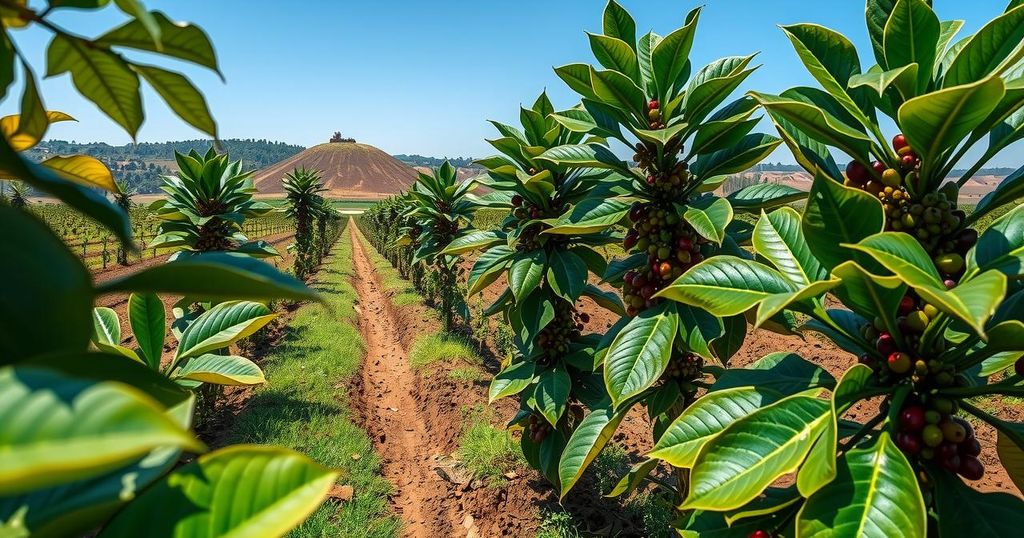Sam Mednick’s reporting in South Sudan highlights a climate-resistant coffee initiative aimed at improving farmers’ livelihoods. This extensive story required careful planning amid regional conflict and presented a multifaceted view through various media. AP’s exclusive coverage uniquely focused on the economic potential of excelsa coffee, leading to widespread discussion.
South Sudan has faced numerous challenges, extensively documented by West Africa reporter Sam Mednick. During her reporting trip last year, she discovered an initiative focusing on a unique climate-resistant coffee bean, which shows promise for enhancing farmers’ livelihoods.
The undertaking demanded months of meticulous planning from Mednick and photographer Brian Inganga. They needed to carefully schedule their visit and arrange for transportation, ultimately traveling via a United Nations flight. Just days before their departure, conflict erupted in the region, yet they successfully reached the coffee plantation, where Mednick captured additional video footage herself.
Their comprehensive story, presented through text, visuals, video content, and an engaging Instagram reel, garnered significant attention and even generated discussion on Reddit. Although trade publications have noted the climate resilience of excelsa coffee, none had previously examined its economic benefits for local farmers. The Associated Press’ exclusive storytelling thus delivered a distinctive narrative centered on sustainability and its impact.
In summary, the initiative to promote climate-resistant coffee in South Sudan exemplifies a promising economic opportunity for local farmers amidst ongoing crises. The meticulous planning and reporting by Sam Mednick and Brian Inganga culminated in a compelling multimedia story that adds depth to the understanding of sustainable agriculture in this troubled region.
Original Source: www.ap.org






